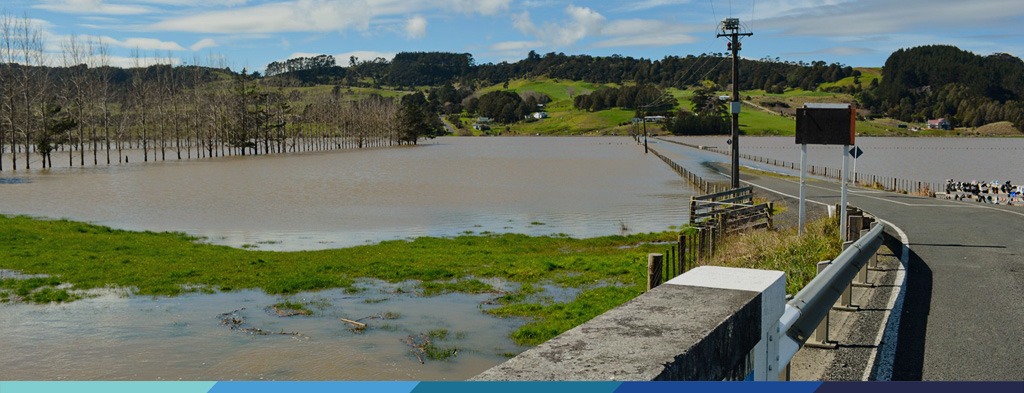
Operating your business in severe weather events
by Tanya Gray | Jan 31, 2023 | Disaster Management, Health & Safety

- Operating your business in severe weather events
- Payment Options
- Other things for employers to think about
Operating your business in severe weather events
We hope employers in affected areas are managing to prevail given the recent and continuing severe weather events. Before even considering the interests of the business, during and after an emergency or disaster, the health, safety and security of your team, yourself and customers/clients should be the main concern. In these stressful times there are a lot of issues for you to consider speedily, including health and safety, employee emotional wellbeing and payment options.
Payment Options
There are several reasons why an employee may not be able to work in severe weather events such as our current situation including:
- An employer may be unable to provide work for employees who are willing and able to carry out their agreed hours of work;
- An employer may be unable to provide a suitable and safe workplace for employees who are willing and able to carry out their agreed hours of work;
- Employees can’t access the workplace because of restrictions not directly related to their own workplace and out of their employer’s control (e.g., road closures, safety issues relating to adjoining buildings, evacuation due to flooding or tsunami risk);
- An employee (or their dependant) is sick or injured and unable to work;
- An employee has to care for a dependant because usual care is unavailable – such as current school closures;
- An employee is willing and able to work but their usual mode of transport is unavailable.
In relation to payment, in general, employers must compensate those on their payroll who are ready, willing and able to be work – even if you are unable to assign work to them. Depending on what is stipulated in the employment agreement, employers may be released from their contractual obligations, such as having to pay workers or continue their employment, if the agreement contains a ‘force majeure’ clause. That is, when an extrinsic event such as weather “renders the employment agreement impossible to perform.” This would be a situation where you are unable to operate for a lengthy period.
For shorter periods, there are a range of mutually agreed arrangements that could be implemented such as:
- Annual leave;
- Anticipated annual leave or additional annual holidays;
- Using an entitled alternative holiday;
- Special leave, either as provided for in employment agreements or workplace policies or by agreement between the employer and employee;
- Leave without pay;
- Employees can take sick leave if their partner or dependents are injured or sick and they have sick leave available or the employer agrees to extra sick leave;
- Other paid or unpaid leave either as provided for in employment agreements or workplace policies or by agreement between the employer and employee; and
- Advance on wages.
Whichever option you and your employee agree on may depend upon the circumstances, including the nature and extent of the emergency or disaster and how long it lasts for. Once all leave entitlements under the Holidays Act 2003 and any negotiated additional leave or any anticipated leave entitlements run out, employees and their employers will need to consider further options in good faith (and consider the impact these options will have on your business’s recovery later).
Remember, if there are any changes to employee’s terms and conditions as an outcome of mutually agreed arrangements, make sure you get these documented and signed off by both parties.
Other things for employers to think about
- Staff communication and support are very important. Before, during and after an emergency or disaster, contact staff as soon as possible to advise them of the workplace situation and your expectations of them. Give them updates even if they are not required to be at work so that they know what is going on. Use texts and social media where possible to minimise overload of the telecommunications network. Remember staff may be under additional stress, provide them with support and help and show your concern. This could include access to an employee assistance programme for counselling, having a team debrief, daily blog or email;
- Ensure your employees know about Work and Income’s Civil Defence Payment – this is available for people who are affected by the current flooding, and can assist with payments for emergency food, clothing and bedding, costs if you have to leave your home, and other expenses such as loss of income because you are unable to work. Find out more on Work and Income site – North Island floods – Work and Income;
- Insurance – check what your insurance cover provides;
- Flexible work arrangements – working remotely where possible;
- Transport options for employees – e.g., carpooling.
Act in good faith and be honest with your team about the situation. If an employee has a concern about the workplace being unsafe or anything else ask them the specifics of their concern so that you can investigate.
If you have any concerns or specific queries, please do not hesitate to get in touch with us.
